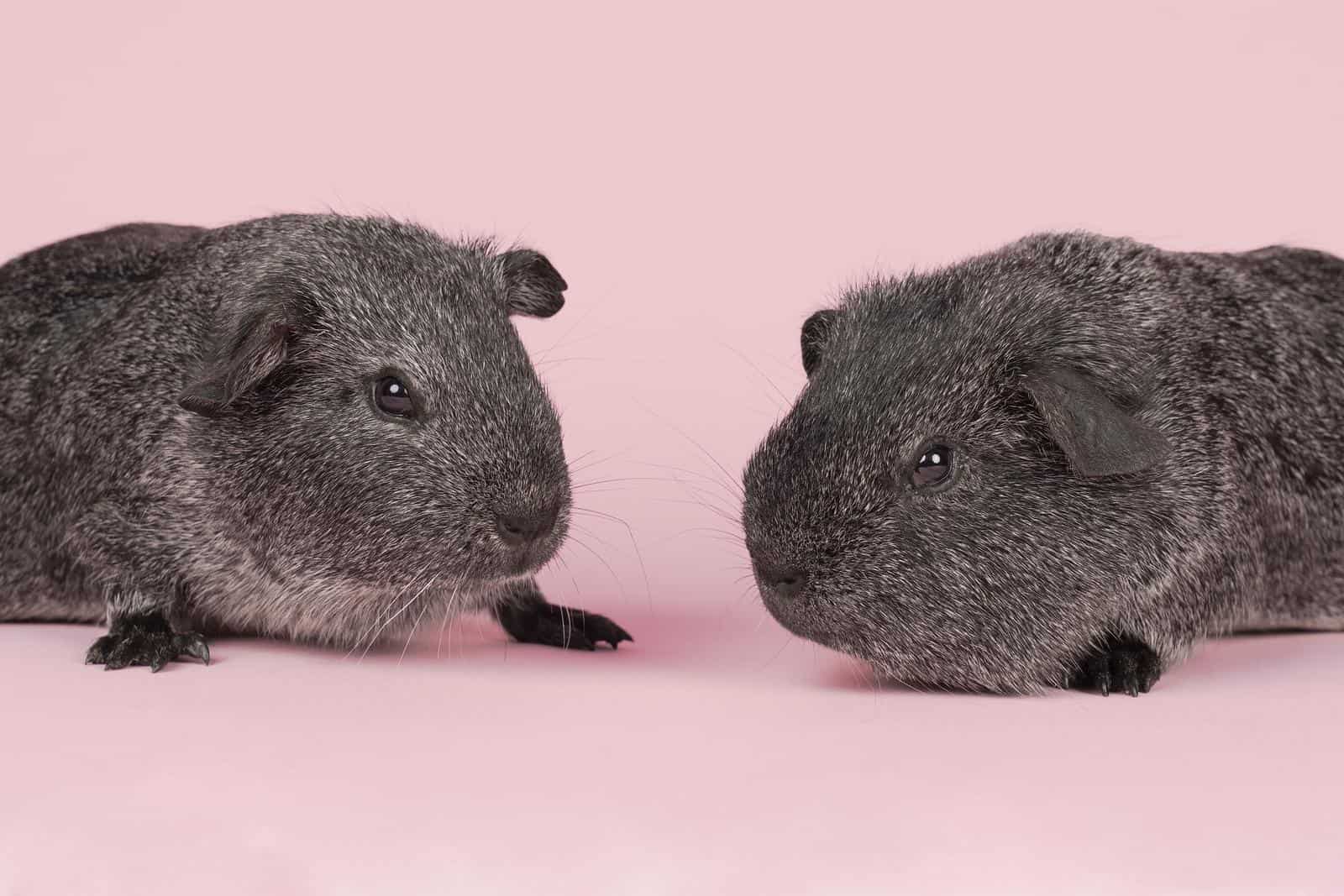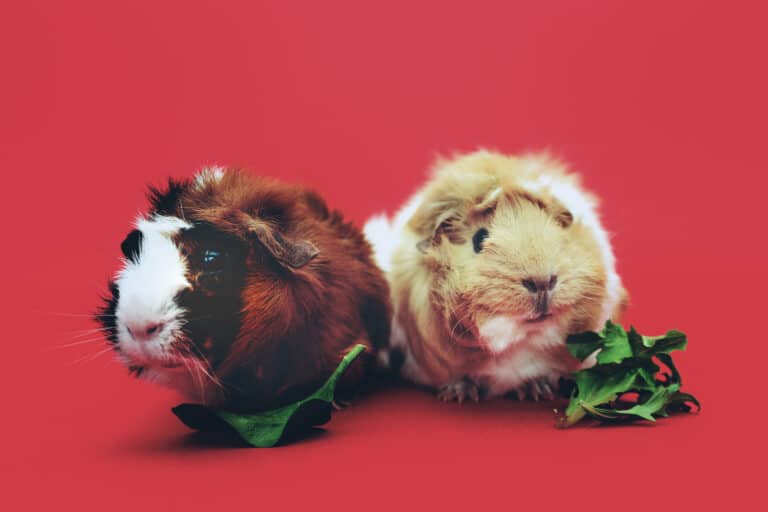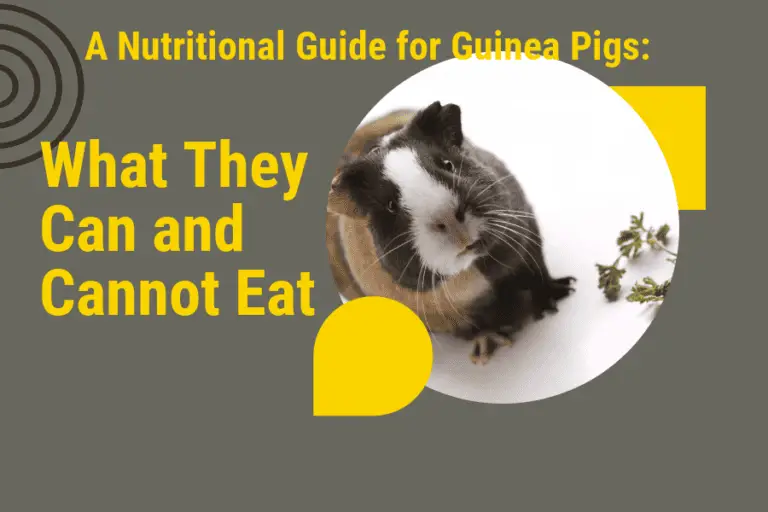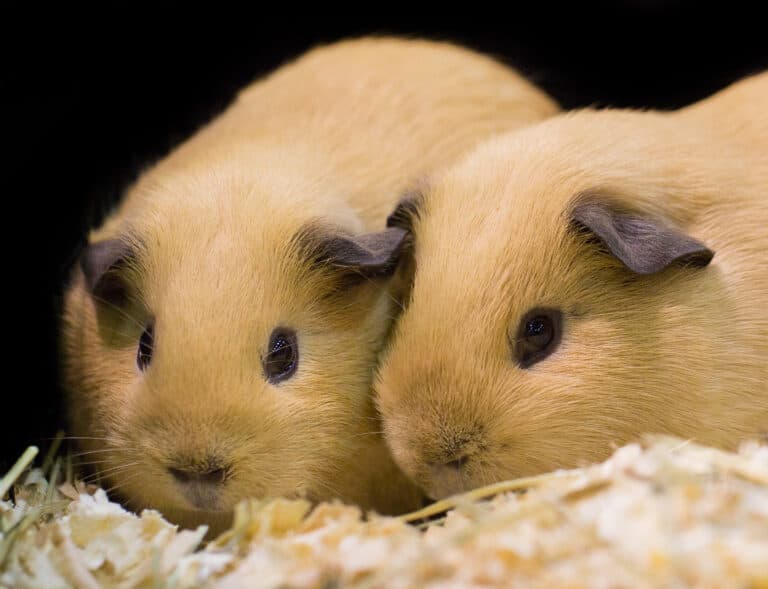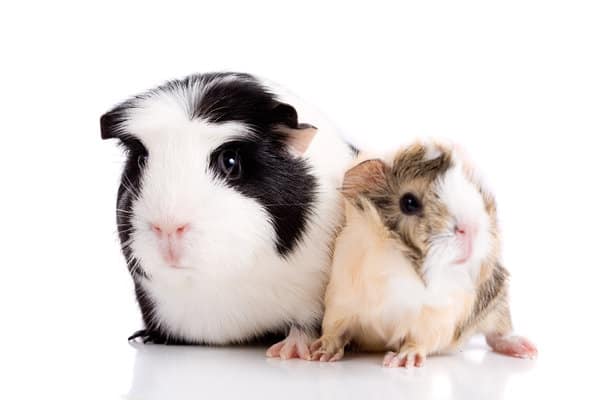The Importance of Hay in Guinea Pig’s Diet: Why They Can’t Go Without it for a Day
If you’re a guinea pig owner, then you probably know that hay is an essential part of your guinea pig’s diet. In fact, it’s so important that guinea pigs can’t go without it for even a day. Although hay may seem like a simple and insignificant component of your pet’s diet, it plays a crucial role in maintaining their health and well-being. In this article, we’ll explore why hay is so important and what happens if your guinea pig doesn’t get enough of it.
Why do guinea pigs need hay in their diet?
What role does hay play in a guinea pig’s diet?
Hay is an excellent source of fiber which is necessary to keep your guinea pig’s digestive system functioning properly. Fiber helps to keep their gut moving by preventing blockages, which can cause digestive issues like bloating.
What happens if a guinea pig doesn’t get enough hay?
If your guinea pig doesn’t get enough hay in their diet, there could be serious consequences. Without enough fiber, their digestive system can slow down and become blocked, leading to uncomfortable bloating and even life-threatening gut stasis. Additionally, without the constant chewing and grinding that hay provides, your guinea pig’s teeth could overgrow and cause painful dental issues.
What type of hay is best for guinea pigs?
There are several types of hay available for guinea pigs, but the two most common are timothy hay and alfalfa hay. Timothy hay is the best option for adult guinea pigs, while alfalfa hay is better suited for young, growing guinea pigs. It’s important to note that alfalfa hay should be given in moderation to avoid an overabundance of protein and calcium in your guinea pig’s diet.
How much hay should you feed your guinea pig?
How often should you replenish your guinea pig’s hay?
Hay should be available to your guinea pig at all times to ensure they have access to the fiber and nutrients they need. You should aim to provide them with fresh hay daily, and regularly check to make sure they have enough to replace any that has been soiled or consumed.
Is it okay for a guinea pig to eat only hay?
While hay is an essential part of your guinea pig’s diet, it’s not the only food they need. Pellets, fresh vegetables, and occasional fruit should also be included in their diet. This ensures that they receive a variety of nutrients and minerals necessary for their health.
What kind of hay should be given to guinea pigs with allergies?
If your guinea pig has allergies or sensitivities, it’s important to choose the right type of hay for their needs. Grass hay, such as meadow or orchard grass, is usually the best option to avoid any potential allergens or irritants.
Can guinea pigs go without hay?
How long can a guinea pig go without hay?
A guinea pig shouldn’t go without hay for more than a few hours. Without access to hay, their digestive system can slow down and become blocked, leading to severe health issues. It’s crucial to make sure that your guinea pig has a constant supply of fresh hay available at all times.
What other types of food can be given to a guinea pig if there is no hay available?
If you run out of hay, make sure to replace it as soon as possible. In the meantime, you can offer your guinea pig fresh grass or leafy greens such as lettuce or kale. However, keep in mind that these foods lack the necessary fiber content that hay provides, so it’s essential to replenish their hay supply as soon as possible.
Is it harmful for a guinea pig to go without hay for a day?
Yes, it’s harmful for a guinea pig to go without hay for a day. Without access to hay, their digestive system can become sluggish and even lead to deadly complications such as gut stasis. It’s important to make sure that your guinea pig always has access to fresh hay to avoid any health issues.
How does hay contribute to a guinea pig’s health?
What part of the guinea pig’s digestive system does hay benefit?
Hay benefits the cecum, which is a part of your guinea pig’s digestive system responsible for breaking down and fermenting fibrous material. The cecum functions as a sort of “factory” for guinea pigs, producing healthy bacteria and nutrients that are important for their overall health and well-being.
Does hay help keep a guinea pig’s teeth healthy?
Yes, hay plays an important role in keeping your guinea pig’s teeth healthy. The constant chewing and grinding that hay requires helps to wear down their teeth naturally, preventing overgrowth and painful dental issues.
Can hay help prevent obesity in guinea pigs?
Yes, hay can help prevent obesity in guinea pigs by providing a low-calorie, high-fiber source of nutrition. Unlike pellets and other sugary treats, hay provides your guinea pig with the necessary nutrients without leading to overconsumption or weight gain.
What are the consequences of not providing a guinea pig with enough hay?
What kind of health issues can arise if a guinea pig doesn’t get enough hay?
If your guinea pig doesn’t get enough hay in their diet, they could experience serious health issues such as bloating, gas, and gut stasis. Additionally, without enough fiber in their diet, guinea pigs are more likely to develop painful dental problems and may even experience a weakened immune system.
Can a lack of hay cause behavioral issues in guinea pigs?
Yes, a lack of hay in a guinea pig’s diet can lead to behavioral issues such as irritability and aggression. This is because guinea pigs naturally require a lot of fiber to keep their gut moving and their mind stimulated. Without enough hay to chew on and explore, they can become bored and agitated.
What are the signs that a guinea pig is not getting enough hay?
If your guinea pig isn’t getting enough hay in their diet, they may show signs of bloating or constipation. You may also notice them grinding their teeth frequently or displaying other signs of dental pain. Additionally, a lack of hay can lead to decreased activity levels and behavioral issues like aggression or depression.
In conclusion, hay is an essential part of your guinea pig’s diet and plays a crucial role in maintaining their overall health and well-being. As a guinea pig owner, it’s important to provide your pet with a constant supply of fresh hay and monitor their diet to ensure that they receive all the nutrients they need. Make sure to consult with your veterinarian for further advice on the best hay for your guinea pig’s needs.
“

